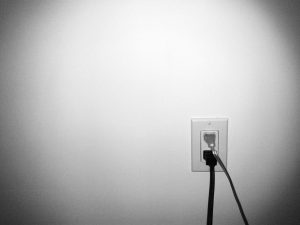The replacement of electrical outlet

Electrical outlets, just like other electrical equipment, are susceptible to damage, malfunction, and wear. Serious damage to outlets usually requires their replacement. After all, the cost of a socket replacement is often much less than the cost of the damage the socket can cause. Below are some of the telltale signs that may indicate that the electricians need to replace outlets.
The electrical outlet breaks
A broken electrical outlet is dangerous in more ways than one. First, water can easily enter the socket and, since water conducts electricity, exposure to water can cause a short circuit that can cause fire or electric shock (or even electrocution if the socket is at high power). The short circuit can also cause electrical faults in other parts of the circuit and cause damage.
A broken electrical outlet is dangerous in more ways than one. Firstly, water can easily enter the socket and, since water conducts electricity, exposure to water can cause a short circuit that can cause fire or electric shock (or even electrocution if the socket is at high power). The short circuit can also cause electrical faults in other parts of the circuit and cause damage.
Second, if the crack is large enough, a child can poke their finger or, even more likely, insert an object into the crack and suffer an electric shock. Parasites can also enter the socket and chew the insulation or cause a short circuit and its dangerous consequences.
The holes have widened
An electrical plug should fit snugly into any outlet; a socket has lost its usefulness and becomes dangerous if the plugs come loose or fall out when you insert them into the socket. This situation occurs when normal wear or damage has loosened the holes in the outlet.
A free grip is more than an inconvenience; the situation is dangerous. For example, a loose plug can cause sparks, which can create electric arcs and start an electrical fire. Replace your outlets before they get to that dangerous eventuality.
The outlet is dead
Even a dead end is useless. It is possible to overcrowd other outlets or overload other short circuits if one or more outlets are dead. Stores die for several reasons, for example:
- The cable connections in the output have come loose.
- The socket burned out due to overheating.
- The circuit is overloaded.
- The socket has an electrical discontinuity problem.
- The socket is damaged.
It may be possible to replace an outlet if they can diagnose an issue, and it is repairable. Something like loose threads, for example, is repairable. In many cases, however, the simplest solution is to replace the entire store.
The outlets are burned
Whether it is working or not, call an electrician to replace a burnt outlet. A burnt outlet has dark or discoloured areas around it or on the lid of the outlet itself. The socket may also be hot to the touch when you turn it on. In severe cases, some parts of the exit could even melt.
Sockets typically burn when they don’t work properly or are unable to handle the electricity you want to draw from them. For example, an outlet could burn if corrosion has hit it since corrosion increases the electrical resistance, which leads to overheating. The damage in a burnt outlet can only get worse over time, so replace it before the worst happens.
Outlets are not appropriate for the area
Before replacing an electrical outlet, consult an electrical contractor to diagnose the problem and advise if he requires a replacement. The technicians we work with at Emergency Electrician Manchester can do this for you and also help you diagnose other associated electrical issues. You should never postpone electrical issues; contact us as soon as you notice a malfunction.
Finally, a socket should also be replaced if it is found to be inappropriate for the area. For example, all sockets located near water (such as kitchen or bathroom sockets) should have grounded circuit breakers (GFCI). GFCI protects you from injury or electrical damage in case of detection of an electrical fault, such as a short circuit due to exposure to water.
Call 01613941078
